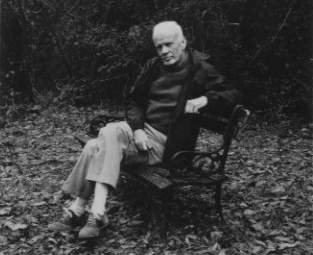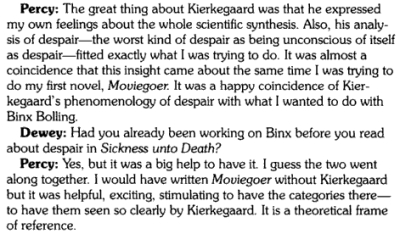
American creative writing instruction, in my experience, tends to discourage would-be novelists from working with philosophical concepts. Large, abstract ideas are seen as the province of scientists and Nobel laureates. Everyone else, the thinking goes, should stay squarely in the realm of concrete troubles like adultery or thievery or murder.
But don’t the best novels — Crime and Punishment, for instance, or The Sea, The Sea or Disgrace — blend the two? Aren’t we interested in the reasons for and implications of characters’ predicaments and actions?
In my favorite Walker Percy interview, an annotated 1974 conversation with scholar Bradley R. Dewey, the author reveals that The Moviegoer was a story in search of a philosophical framework until he read Kierkegaard.
